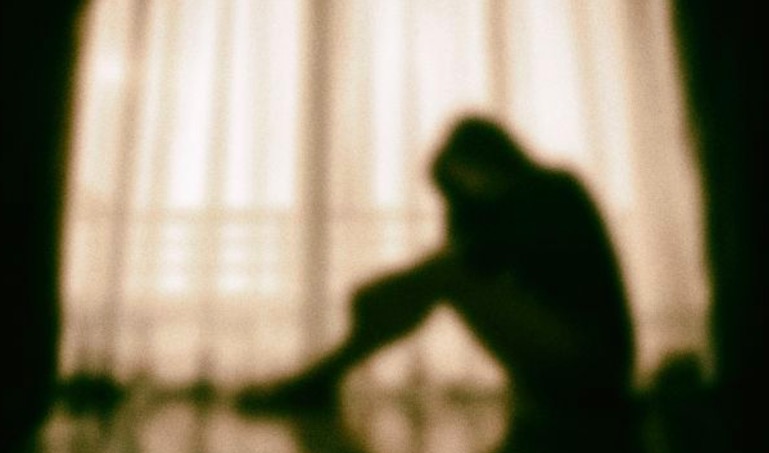How Domestic Violence Can Lead to Permanent Brain Trauma

Domestic violence doesn’t just leave emotional scars—it can cause lasting physical damage that many victims don’t realize until years later. Repeated blows to the head, violent shaking, and strangulation can result in traumatic brain injuries (TBI) that affect memory, behavior, and cognitive function. Unlike broken bones or bruises, brain trauma isn’t always visible, making it harder to diagnose and treat. Many survivors live with persistent headaches, confusion, and emotional instability, unaware that these symptoms are linked to past abuse.
The long-term effects of domestic violence-related brain injuries can be devastating. Survivors may struggle with concentration, mood swings, or even personality changes that interfere with daily life. Because these injuries often happen behind closed doors, they are frequently misdiagnosed or ignored. Understanding how domestic violence causes brain trauma is critical to ensuring survivors receive the medical and legal support they need.
How Domestic Violence Leads to Brain Injuries
Head trauma is one of the most common yet overlooked consequences of domestic abuse. Victims often suffer repeated blows to the head, whether from punches, being pushed against walls, or having their heads slammed into hard surfaces. Strangulation, another common form of abuse, can cause brain damage even if a victim doesn’t lose consciousness. When oxygen is cut off, brain cells begin to die within minutes, leading to long-term cognitive problems.
Many survivors don’t seek medical help because they don’t recognize the symptoms of a brain injury. Some believe that if they aren’t knocked unconscious, they must be fine. Others are too afraid to get treatment, fearing retaliation or further abuse. This lack of medical attention allows brain trauma to worsen over time, leading to more severe symptoms.
Recognizing the Hidden Symptoms of TBI
Traumatic Brain Injuries (TBI) don’t always cause immediate symptoms, making them difficult to detect and diagnose.
- Delayed Cognitive Issues- Memory loss, trouble concentrating, and mental fog may appear gradually, often mistaken for stress or aging.
- Mood Swings and Emotional Changes- Unexplained irritability, depression, or anxiety can be signs of an undiagnosed brain injury.
- Impulsive or Risky Behavior- Survivors may struggle with poor decision-making, aggression, or difficulty controlling emotions.
- Feelings of Detachment- A sense of disconnection from loved ones or difficulty forming emotional bonds can result from neurological damage.
- Cumulative Impact of Minor Injuries- Repeated small head injuries, even those that seem harmless, can add up over time, leading to chronic cognitive and emotional issues.
Recognizing these hidden symptoms is essential for seeking appropriate medical care and understanding the long-term effects of brain injuries.
The Importance of Legal Assistance in Brain Injury Claims
For many survivors, seeking legal help is essential in holding abusers accountable and securing financial support for medical treatment. TBI attorneys at Hill Law Firm assist victims in proving the long-term impact of domestic violence-related brain trauma. Many abusers try to minimize the harm they’ve caused, but medical evidence and legal expertise can help establish the true extent of the injuries.
Brain injuries can affect a survivor’s ability to work, maintain relationships, or lead an independent life. Compensation for medical bills, therapy, and lost wages can make a significant difference in their recovery. Legal action also helps shine a light on the severity of these injuries, pushing for better protections for victims. Seeking justice isn’t just about financial relief—it’s about recognizing the lasting harm that domestic violence inflicts.
How Brain Trauma Affects Daily Life
A brain injury doesn’t just affect memory and concentration—it can change every aspect of a person’s life. Survivors often struggle with chronic fatigue, sensitivity to noise and light, and difficulty processing information. These challenges make it harder to hold a job, manage finances, or even complete everyday tasks like grocery shopping. Many victims describe feeling like they aren’t the same person they used to be.
The emotional impact is just as significant. Survivors may feel isolated, frustrated, or hopeless about their future. They may withdraw from friends and family, fearing they will be misunderstood or judged. Without proper medical treatment and emotional support, these struggles can become overwhelming. Recognizing the true effects of brain trauma is the first step in helping survivors rebuild their lives.
Why Many Survivors Don’t Receive Proper Medical Care
Despite the serious nature of domestic violence-related TBIs, many survivors don’t receive the care they need. Some fear going to the hospital, worried that their abuser will retaliate if they seek help. Others simply don’t realize the severity of their injuries, assuming that their symptoms are just stress-related. Unfortunately, this leads to untreated brain trauma that worsens over time.
Even when survivors seek medical attention, doctors don’t always ask about domestic violence. Many healthcare providers focus on visible injuries, overlooking signs of cognitive damage. This gap in diagnosis leaves many victims suffering in silence, unaware that their symptoms are linked to head trauma. Improving medical screening for brain injuries in domestic violence cases is essential for early detection and treatment.
The Need for Greater Awareness and Support
Addressing the connection between domestic violence and brain trauma requires education, policy changes, and better medical resources. Many shelters and support organizations focus on emotional recovery but lack specialized programs for brain injury treatment. Survivors need access to neurological evaluations, cognitive therapy, and long-term medical care to manage the effects of TBIs.
Advocacy groups are pushing for stronger protections and better medical training to help survivors receive the care they deserve. Raising awareness about the long-term impact of domestic violence-related brain injuries is critical. The more people understand this issue, the better-equipped society will be to help survivors heal. No one should have to suffer in silence when resources and support are available.
A Path Toward Healing and Justice
While brain trauma from domestic violence can have permanent effects, early intervention, and proper treatment can improve a survivor’s quality of life. Medical care, therapy, and legal support can help victims regain their independence and rebuild their future. Raising awareness about the risks of domestic violence-related TBIs ensures that more survivors receive the help they need before it’s too late.
Protecting survivors goes beyond physical safety—it includes recognizing the hidden injuries that last long after the abuse ends. Brain trauma should never be ignored or dismissed. With stronger medical and legal support, survivors can heal, seek justice, and move forward with their lives. The fight against domestic violence must include addressing its neurological impact ensuring survivors have the resources they need to recover fully.
Spotted something? Got a story? Send a Facebook Message | A direct message on Twitter | Email: [email protected] Latest News









